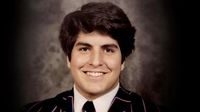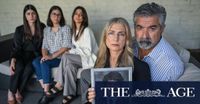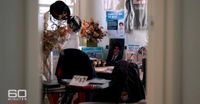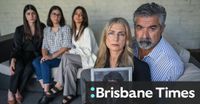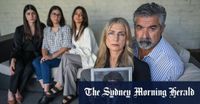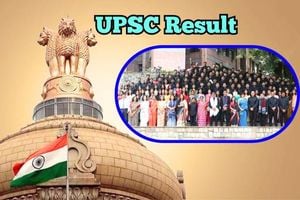In a heart-wrenching tale of loss and accountability, the Tsindos family is speaking out about the tragic death of their son, James, who died at the age of 17 due to anaphylaxis after consuming cashews. The family’s story, highlighted in a special report by 60 Minutes and The Age, sheds light on the failures of the private healthcare system in Australia, particularly at Holmesglen Private Hospital, which is operated by Healthscope.
James Tsindos was a bright student at Brighton Grammar School and a talented pianist. However, since his untimely death in May 2021, the piano in his family home has remained untouched—a constant reminder of the son they lost. "I’m waiting for him to come home," his mother, Venetia Tsindos, expressed, reflecting the profound grief that has enveloped the family.
The tragedy unfolded when James was taken by ambulance to the emergency department of Holmesglen Private Hospital in Moorabbin, Melbourne, after he unknowingly consumed cashews in a burrito bowl. Despite being administered two doses of adrenaline by paramedics before arriving at the hospital, James developed a wheeze—a sign that the medication was losing its effectiveness. Unfortunately, this critical detail was not communicated during the handover to the triage nurse.
James was incorrectly triaged as a category three patient, which meant he was to be seen by a doctor within 30 minutes. Instead of being placed in a resuscitation room, he was put in isolation while awaiting a COVID-19 test. Tragically, his condition deteriorated, leading to cardiac arrest and a catastrophic brain injury.
Harry Tsindos, James' father, has been vocal about the family's anguish and confusion over the circumstances surrounding his son's death. "I’m burying my son, and I don’t really know what happened," he lamented. "I’ve got a kid that walks into an ambulance, says to me, 'Dad, I’m fine', and I’m burying him, and I don’t know why. When you say to me what went wrong, what went wrong is that we took him to Holmesglen hospital. That’s what went wrong."
James’ sisters, Kristina and Georgia, share in the family’s pain, believing that their brother’s death was entirely preventable. "I personally don’t think they should have an emergency department. They should scratch their whole emergency department," Kristina asserted. Georgia echoed her sentiments, stating, "I’m angry at the hospital. I’m angry at the fact that he didn’t get to live his life, and I’m angry that he was only 17 when this happened to him. It was so preventable."
The Tsindos family’s grief is compounded by the knowledge that a simple shot of adrenaline could have saved James. "It’s adrenaline...the simplicity and the devastation of not doing that. It’s gut-wrenching," Harry Tsindos said. He expressed a desire for Healthscope to acknowledge their failure, stating, "What they should have said is, 'We are sorry. This shouldn’t have happened. James should still be alive. We screwed up, bad. And we’re going to work out why and we’re going to make sure it doesn’t happen again.'" Venetia added, "It’s not only frustrating, but it’s tragic and traumatic to try and come to terms with the fact that first aid wasn’t actioned in an emergency hospital."
The Tsindos family is not alone in their outrage. In 2017, Annie Moylan, a pregnant woman, died after her sepsis was misdiagnosed as gastro at Holmesglen. More recently, in September 2024, two-year-old Joe Massa died at Northern Beaches Hospital in Sydney after waiting almost three hours for help. His father, Danny Massa, believes that Healthscope should not be responsible for emergency care in Australia. "Not by any stretch of the imagination. We aren’t an isolated case through the care of Healthscope in emergency departments. It makes my blood boil," Massa stated.
Healthscope, which operates 38 hospitals across Australia, is currently facing scrutiny and financial difficulties, struggling under a $1.6 billion debt. The company has announced it is in talks to hand back the Northern Beaches Hospital to the state government amid investigations into Joe Massa’s death. Elouise Massa, Joe’s mother, expressed her frustration, saying, "They are failing, and what does it come down to? Cost. Enough is enough."
In response to the incidents, Healthscope CEO Tino La Spina issued a statement emphasizing that their emergency departments care for nearly 150,000 patients each year, with most receiving timely and compassionate care. However, he acknowledged that there are rare instances when patient care does not meet expected standards. La Spina also recognized the "unacceptable failings" in the treatment of toddler Joe Massa and expressed regret that he did not receive the care he deserved. He assured that Healthscope is fully cooperating with the inquest into James’ death and will implement any recommendations made by the coroner.
As the families of James Tsindos and Joe Massa seek answers and accountability, their stories serve as a stark reminder of the critical importance of effective emergency care and the devastating consequences of its failure. The Tsindos family continues to advocate for change, hoping that their tragedy will lead to improvements in the healthcare system to prevent similar losses in the future.
